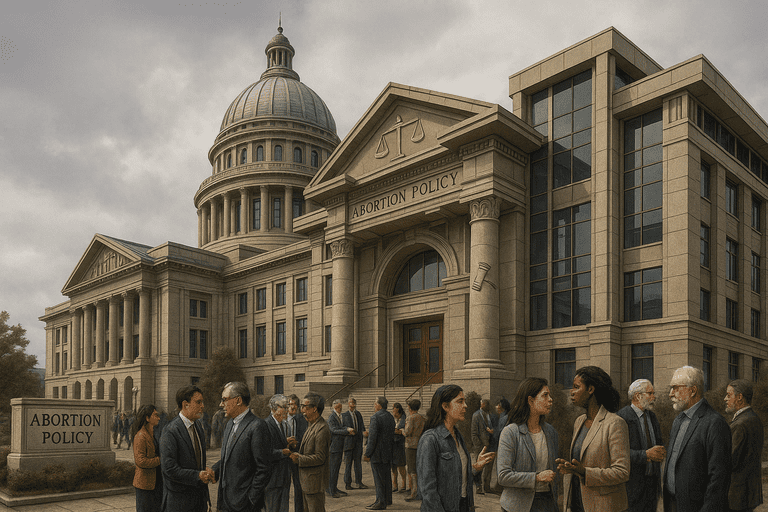Recent legislative actions across various states have led to significant changes in abortion policies, each with distinct provisions and consequences.
**Georgia’s Legal Landscape**
In Georgia, the enforcement of House Bill 481, known as the Living Infants Fairness and Equality (LIFE) Act, has introduced complex scenarios. The law prohibits abortions after the detection of embryonic cardiac activity, typically around six weeks into pregnancy. This has resulted in cases like that of Adriana Smith, a 30-year-old nurse declared brain dead while two months pregnant. Due to the law’s recognition of fetal personhood, Smith has been maintained on life support to allow the fetus to develop, despite her family’s wishes. The situation underscores the law’s lack of guidance in cases of maternal brain death and raises questions about medical ethics and patient rights. (apnews.com)
**South Carolina’s Judicial Decisions**
South Carolina’s Supreme Court recently upheld the state’s six-week abortion ban, affirming that the law’s language aligns with legislative intent to restrict abortions once cardiac activity is detectable. Critics argue that the law’s vague language complicates medical care and threatens patient safety. The law includes limited exceptions for cases such as rape, incest (up to 12 weeks), fatal fetal anomalies, and risks to the mother’s life. (apnews.com)
**Michigan’s Policy Revisions**
In Michigan, a judge overturned the state’s 24-hour waiting period for abortions, citing a 2022 constitutional amendment that guarantees reproductive rights. The ruling also invalidated requirements for abortion providers to give patients information on fetal development and alternatives to abortion, deeming them coercive. Additionally, the limitation that only physicians may perform abortions was lifted, potentially expanding provider eligibility. (apnews.com)
**Emerging Movements and Legal Challenges**
A faction within the anti-abortion movement, known as abortion abolitionists, is advocating for the criminal prosecution of women who obtain abortions, equating it to homicide. This approach has led to proposed legislation in states like Alabama, Georgia, and Texas that would allow charging women with murder for obtaining abortions, with potential penalties including the death penalty. Mainstream anti-abortion groups oppose these measures, arguing they harm the movement. (apnews.com)
**Conclusion**
The evolving landscape of state-level abortion policies reflects a complex interplay of legal interpretations, ethical considerations, and political dynamics. As these laws continue to develop, ongoing oversight and analysis will be necessary to understand their full implications.
—
Julie Harris covers faith, family, and values-based policy. She holds a journalism degree from Hillsdale College and began her reporting career covering religious liberty cases at the state level. With a strong grounding in moral philosophy and cultural reporting, she brings depth and clarity to complex legislative debates surrounding life and faith.

